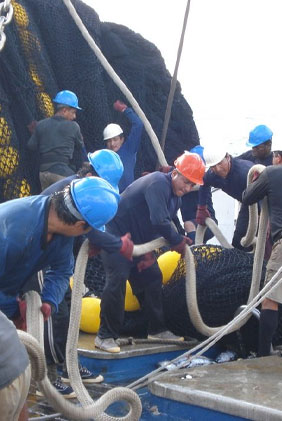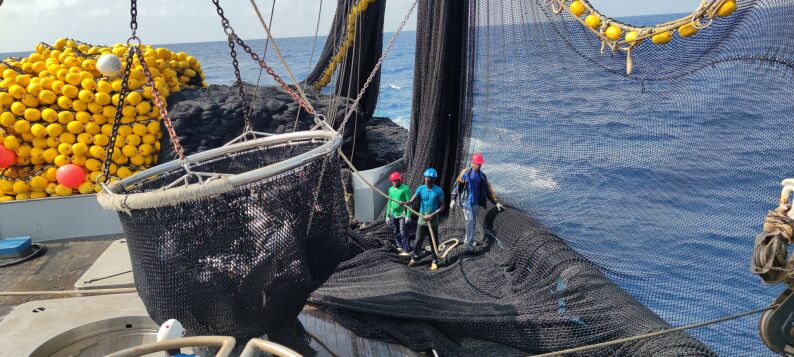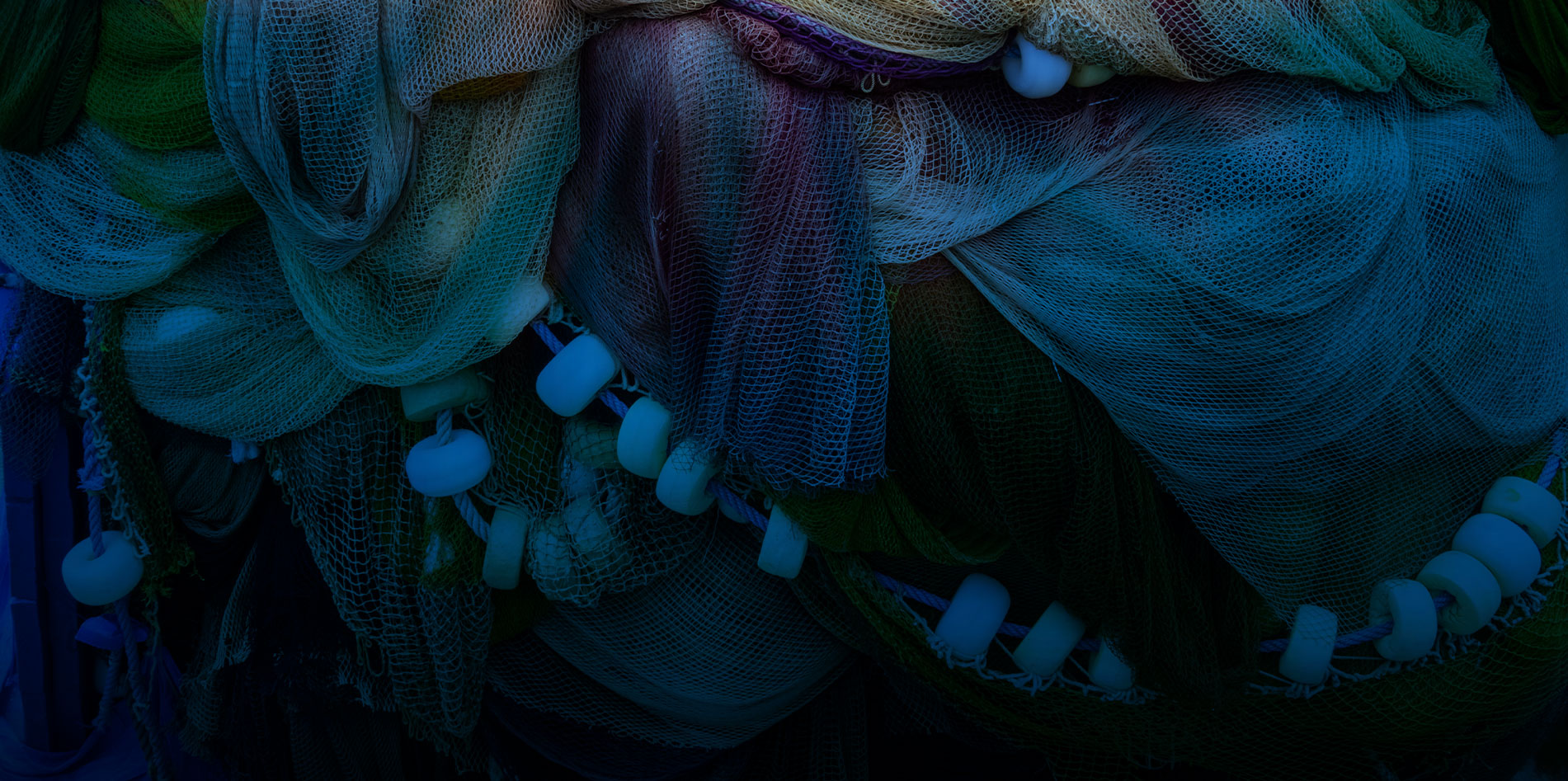
OPAGAC
«Our fishing system is a benchmark for all the tuna purse seiners to minimise their environmental impact»

Julio Morón
Managing director of OPAGAC
OPAGAC
The Organisation of Producers of Frozen Tuna (OPAGAC)’s fleet has always led initiatives to improve fishing sustainability. Constantly evolving and innovating, it has always aimed to improve the fishing capacity of its fleet and reduce the impact on the ecosystem as part of its goal. An example of this is the Good Practices Decalogue signed in 2010 which 2 years later became the Good Practices Code for the entire Spanish tuna sector culminating in the MSC certification, the most important environmental certification in the fishing world, last year.
We spoke to Julio Morón, the OPAGAC managing director, regarding their pro-sustainability work, likewise the other projects in progress and the future.
The OPAGAC fleet was the first to obtain the MSC blue label in the world for half its catches in the 3 oceans where they operate (Indian, Pacific and Atlantic), what’s this road been like?
It’s been a long one which started in 2010 with the adoption of the OPAGAC Good Practices Decalogue which became the Good Practices Code in 2012 signed by the entire Spanish tuna fishing sector, and later the basis for the Fishing Improvement Programme for a further 4 years until MSC certification was achieved. The Good Practices Code is the basis we’re working on to minimise our impact on the ecosystem, with 100% coverage by observers on our vessels, we’re able to validate its application and show the improvement our sailors apply in the sea. It’s a collective effort from the base, from sailors providing practical solutions to the ship-owners and scientists who support us. Our fishing system is certified in all the oceans we operate in and is a benchmark for applicable legislation in the Regional Fishing Organisations, so all the tuna purse seine vessels minimise their environmental impact of one of the most selective fishing practices in the world.
What does this certification mean for the fleet itself, consumers and value chain?
It’s a guarantee we’re doing the best thing possible as we need to continue supplying food sustainably to the growing world population with guarantees that things are being done properly. The nutritional properties of tuna are unbeatable compared to other sources of animal protein and guarantee health, thus we must preserve that to maintain this precious resource in good conditions so our grandchildren can continue to eat tuna in a sustainable way.
To this end you work with scientific and training institutions, etc. How important is the creation of synergies to attain responsible fishing?
It’s essential. The contribution of scientific institutions that helps validate the Good Practices besides directing our actions and making them meaningful is of vital importance so the entire process has the desired efficiency and credibility in its assessment. To this effect we have the inimitable support of AZTI-Tecnalia and IEO-CSIC, which help us assess the tropical tuna populations and improve our fishing.
«The next challenge is to get the market to value social responsibility in fisheries and to restrict the entry of tuna from fleets that exploit their workers»
What do you think the OPAGAC’s role should be in the future?
OPAGAC has been leading the tuna sector with many initiatives which have improved our activity and its recognition. One which makes us particularly proud is the Tuna from Responsible Fishing certification (APR, Atún de Pesca Responsable), which completes the integral sustainability circle of our activity. The latest initiative is the telemedicine project we’re applying on board 11 vessels, and it’s successful, not only because it has saved lives but it’s also giving crew members peace of mind to have quality remote medical attention, which exponentially improves their conditions on board. We hope that at OPAGAC we can continue fostering improvements in the tuna sector to make our fishing as sustainable as possible and our sailors can continue working in the best possible environment and good working conditions. We’re aware at OPAGAC that the secret of our tuna companies’ success lies in having the best fishermen on board our fleet, thus giving us hope there’ll be tuna fishing in the future too.
Improve EU fishing policy
What are main challenges you’re facing? And what do you think is the next step to continue creating a more sustainable sector?
The next challenge is for the market to value social responsibility in fishing, as it’s very environmental sensitive but not so much regarding social sustainability. With Spain’s recent ratification of the ILO C188 Work in Fishing, an enormous step has been taken to demonstrate our fishermen have the minimum working conditions required, moreover, we’re working in an unequal context with other fleets that are light years behind in social matters, yet access the EU market with commercial advantages and competitive disadvantage for our tuna. The market should restrict entry of tuna from fleets which exploit their workers at sea, where it’s extremely easy to uphold abusive practices not to mention slavery on board certain fleets, chiefly Asian ones.
Are we on the right road?
There’s always something to be improved and more now with so many crises undermining the feasibility of our activity (Covid-19, Ukraine War, inflation, fuel price, etc.). However, we feel the biggest improvement is required in the EU fishing policy. We’re seeing, from the European Commission, that the fishermen are virtually considered criminals who only need a stronger threat to make them comply with legislation, which is often impossible to apply (unloading obligation, tolerance range), just to mention some

Moreover, to this entire legislation framework, which is solely applied to the European fleet (whereby competitive disadvantage increases), we have to add the strange ideas about fishing decarbonisation, when it’s known there’s no viable alternative to the use of fossil fuels in fishing vessels; not to mention this decarbonisation is fostered without bearing in mind the legislative framework of the EU fleet capacity management requires radical change. All of this discourages ship-owners from maintaining the activity, since on an international scale, the EU is losing more and more opportunities to fish while at the same time complicating fishing activity with its unequal legislation, which the EU Member States must apply under the threat of serious sanctions against them. This is not going down the right road, particularly when the sector is doing many things to improve our activity.



